If the reason you garden is to feed your family, plan this year’s garden to ensure you’ll have enough to see you through until spring. Here are vegetable varieties that will stock your pantry year-round.
Though we are far from self-sufficient, this year we had enough homegrown potatoes and sweet potatoes to last through March. I am working on using up the last of the applesauce, onions, and winter squash. The garlic is long gone, but we still have plenty of garlic scape pesto in the freezer.
Last year’s tomato crop ended too soon so not a lot of sauce or salsa was made. All summer I made up mixtures of extra vegetables like beans, summer squash and zucchini, chopped kale, and any tomatoes as they ripened and popped them into the freezer to use in winter soups. We eat a lot of soup so these little packages of summer sunshine did not see us past Groundhog Day.
The value of your own organically grown produce can’t be overstated. I suffer from serious sticker shock when I have to start buying vegetables at the grocery store, especially the organic stuff. Flavor and nutrition are lost in shipping, and there is always the risk of E.coli, or listeria, or some other nasty contaminant.
If you’re a beginner, also see our article on starting a small vegetable garden.
Varieties to Grow for a Well-Stocked Pantry
If a well-stocked pantry is your goal, don’t forget to grow some of these old reliables:
- Kale: ‘Red Russian’ and ‘Tuscano de Nero’ are prolific growers and freeze well. ‘Red Russian’ plants have wintered over in our garden giving us early, tender baby leaves at a time of year when there isn’t much else growing. Old-timers used to refer to this time of year when the winter stored food was gone and the garden had not started to produce anything edible as the hungry season or the starving time.
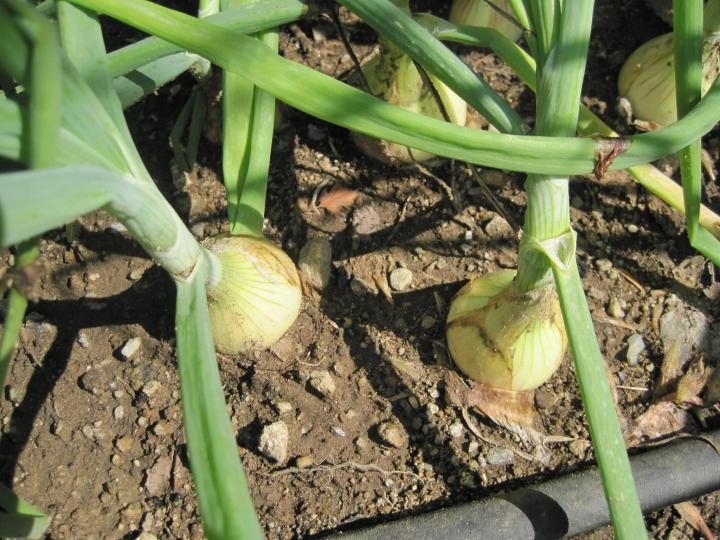
- Onions: ‘Patterson’ is a good keeper. They are easily grown from seed and fairly trouble-free. Be sure to give them lots of water.
- Garlic: ‘Bogatyr’ and ‘Music’ have large cloves but ‘Chesnock Red’ seems to keep the longest without sprouting.
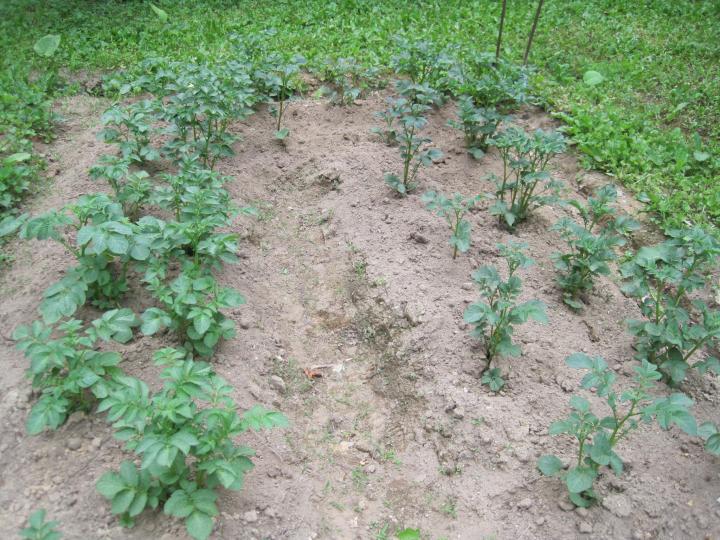
Grow early, mid-season, and late varieties of potatoes, if you have room, to give you spuds to enjoy all season and some for winter too.
- Potatoes: Everyone has their favorites, but ‘Kennebec’ is a good producer of large-sized potatoes that keep for a long time in a cool dark place. Of course, we grow many other varieties, but none last as long as the ‘Kennebecs’.
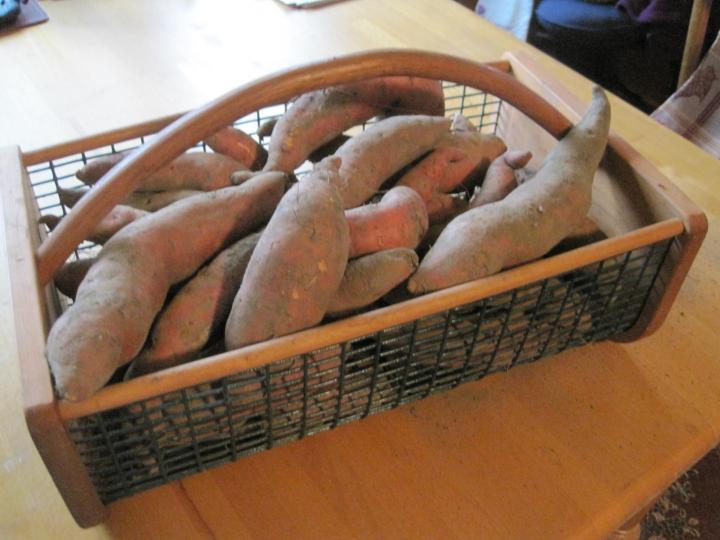
- Sweet Potatoes: We buy ‘Beauregard’ plants simply because they are available locally. They have given us good quantities of sweet potatoes. Even the ones that are too skinny to peel or bake are delicious scrubbed and roasted with other vegetables.
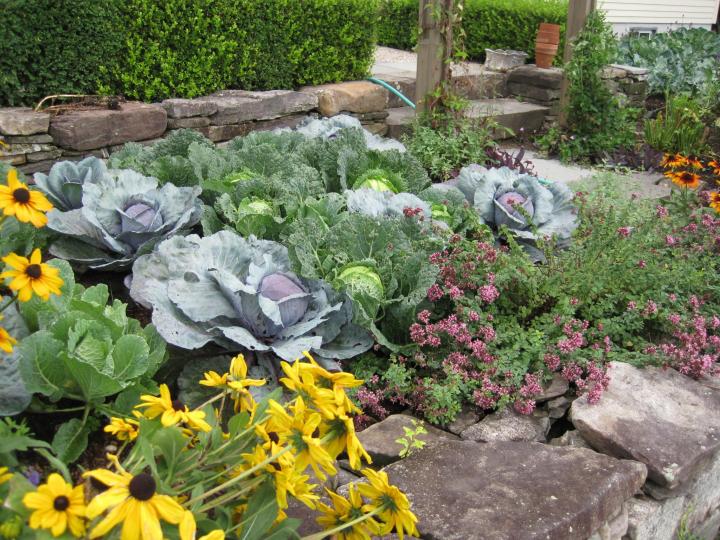
Cabbages are pretty enough to grow right in your flowerbed!
- Cabbage: Rock hard red cabbages such as ‘Ruby Perfection’ and ‘Super Red’ and late varieties like ‘Brunswick’, ‘Late Flat Dutch’, and ‘Bartolo’ have lasted a long time for us in the fridge. I make sauerkraut as a last resort because I am the only one who will eat it!
- Beans: ‘Rattlesnake’ beans are my favorite pole beans. They are delicious and tender when eaten pod and all—or the beans can be dried and used in soup all winter. See more green bean varieties.
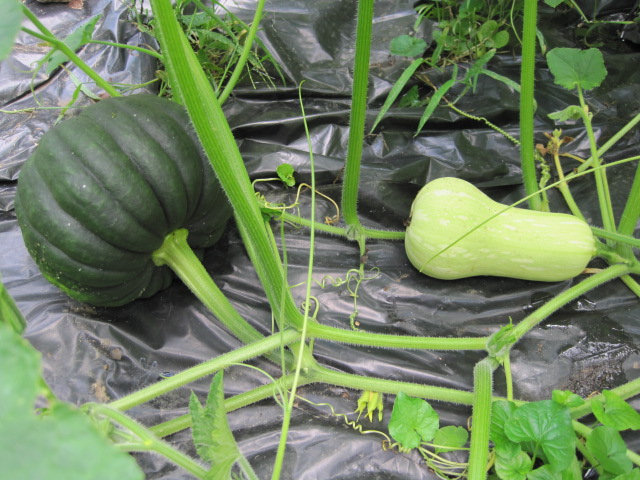
Tetsukabuto and Butternut are good garden companions. The hybrid Tetsukabuto needs the Butternut for pollination.
- Winter Squash: ‘Waltham Butternut’ and ‘Tetsukabuto’ grow the best for us and store very well. They are resistant to the squash vine borer and weather attacks from cucumber beetles and squash bugs. Both are exceptionally sweet and flavorful, and the ‘Tetsukabuto’ is very creamy.
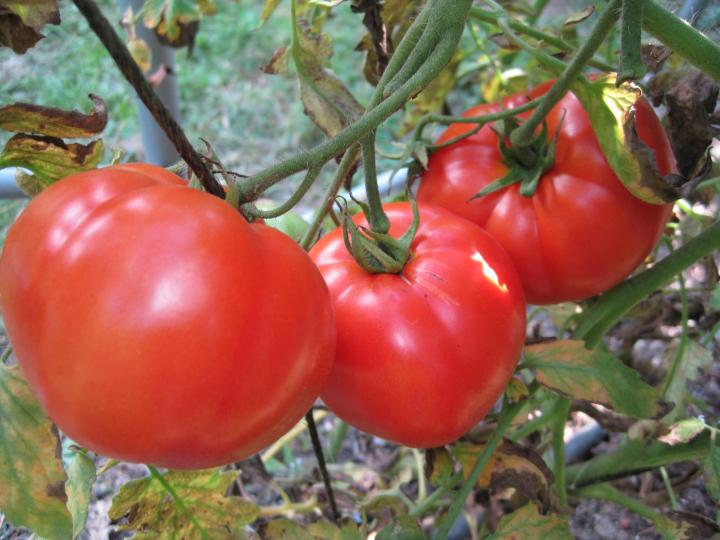
Everything is better with tomatoes!
- Tomatoes: We grow about 40 different kinds so it is hard to recommend just a few, but ‘Opalka’ and ‘Japanese Black’ are two that I grow every year for cooking. They are meaty and prolific. Last year we tried ‘Jersey Devil’ and it was excellent too!
Many other vegetables can be part of your seasonal supermarket. Peppers, eggplant, cucumbers, carrots, beets, and greens including chard and spinach can be enjoyed fresh picked or stored away for winter meals.
Two great books for you to read for inspiration (and recipes) are The Four Season Farm Gardener’s Cookbook by Barbara Damrosch & Eliot Coleman and The Homegrown Pantry by Barbara Pleasant.
When it comes to storage, see the Almanac’s articles on how to store vegetables and fruit and also how to store vegetables in a root cellar.
Need help planning your first vegetable garden?
Check out our handy Almanac Garden Planner which calculates your local planting dates, proper garden spacing, and more! We’ve done the homework for you. With this smart tool, you can plan your garden right on your computer and print out your garden plan, plus get planting and harvesting reminders by email.








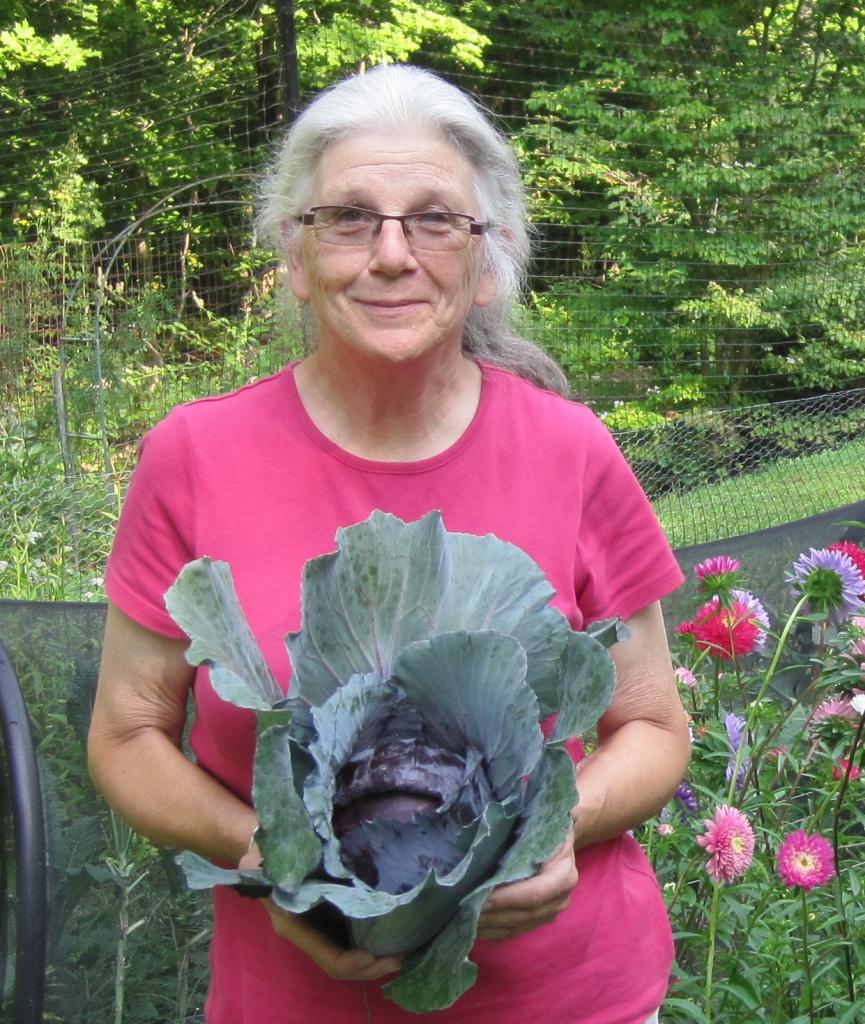

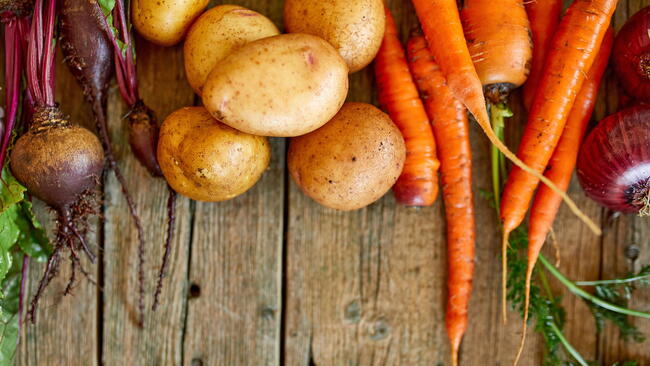


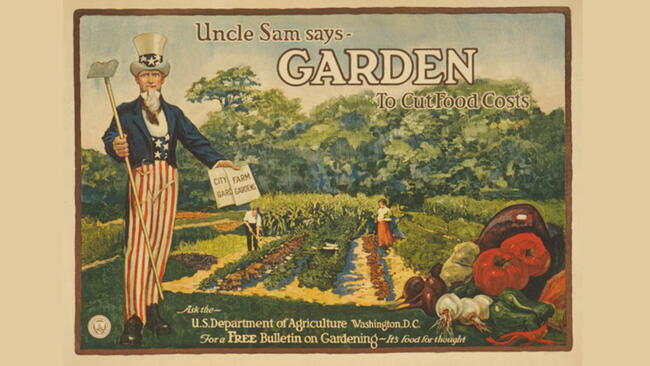



Comments